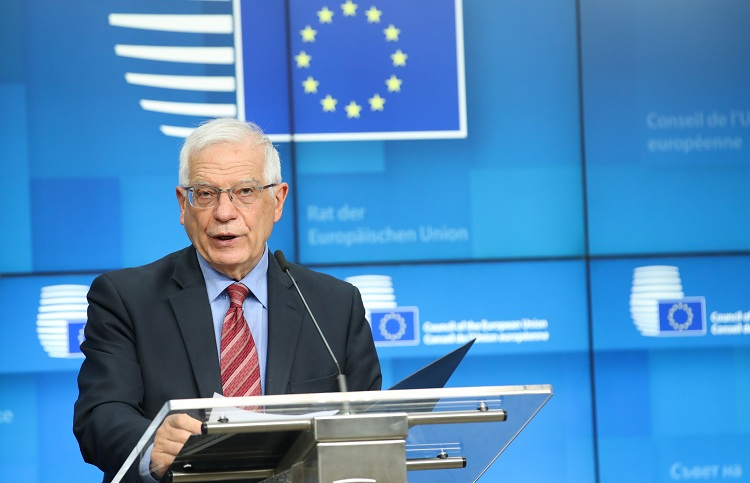Eduardo González
EU Foreign Ministers yesterday approved a package of sanctions against individuals and entities responsible for serious human rights violations and abuses in China, North Korea, Libya, Russia, South Sudan and Eritrea. China has already announced retaliation and Spain has “regretted” Beijing’s response to these sanctions.
The EU Foreign Affairs Council yesterday again resorted to its Comprehensive Sanctions Regime for human rights violations, created in December 2020 and whose premiere took place at last February’s meeting with the adoption of restrictive measures against four Russian officials involved in the arrest, conviction and persecution of opposition figureAlexei Navalni.
In this case, the European sanctions have been directed against eleven individuals and four entities involved in arbitrary mass arrests of Uighurs in the Xinjiang region of China; in acts of repression in the Democratic People’s Republic of Korea; in extrajudicial executions and forced disappearances in Libya; in torture and repression in Russia against LGBTI people and political opponents in Chechnya; and in torture, executions and extrajudicial, summary or arbitrary killings in South Sudan and Eritrea. Apart from the above-mentioned sanctions regime, the Council approved restrictive measures against eleven persons responsible for the military coup perpetrated on February 1 in Myanmar and the subsequent military and police repression of peaceful demonstrators.
In the case of China, these are the first sanctions against this country since 1989, when the then European Community banned arms exports to the Asian giant because of the Tiananmen massacre. In addition, the United Kingdom, the United States and Canada yesterday backed the EU’s decision and announced the imposition of their own sanctions on Chinese leaders.
As expected, Xi Jinping‘s government reacted strongly against sanctions that are based on “lies and misinformation” and amount to “gross interference in China’s internal affairs, flagrantly violate international law and the basic norms governing international relations and seriously undermine China-EU relations”, the Chinese Foreign Ministry said in a statement. China’s rejoinder to these sanctions has been the adoption of similar measures against a dozen European citizens, including five MEPs, and against four entities, including the EU Council’s Political and Security Committee, the European Parliament’s Subcommittee on Human Rights, the Danish Alliance of Democracies Foundation and the Mercator Institute for China Studies in Germany.
“We find the Chinese measures unacceptable and they do not respond to our legitimate concerns” about human rights, EU High Representative for Foreign Policy Josep Borrell said at the post-Council press conference, where he admitted that this situation is going to contribute to creating “a new atmosphere” in China-EU relations.
“Obviously, we regret this decision by China, which we neither share nor accept insofar as the EU sanctions are not directed against countries, but are aimed at protecting and protecting human rights in the world and are adopted after a factual analysis of the situation, verifying where human rights violations have occurred and respecting the legality in force in this matter”, said, for her part, the Minister of Foreign Affairs, Arancha González Laya, at the press conference after the Council. “To us, to Spain, taking into account that we also value the relationship we have with China, it seems to us that perhaps the best way to deal with this issue would be to open an open and honest dialogue between China and the EU on human rights issues to deal with issues that are certainly of concern in Europe”, she concluded.







